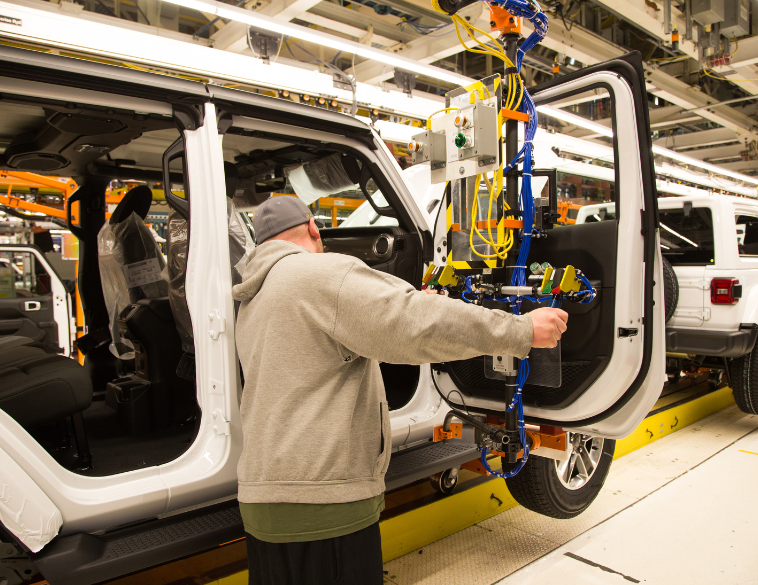Study shows parts and raw materials biggest obstacle to vehicle production.
Given multiple market influencers impacting the automotive industry today, it can be hard to understand how things actually are and more importantly how things will be in the months and years ahead. To help provide an overview and some possible predictions, Automotive Manufacturing Solutions (AMS) and global technology company ABB, released an automotive Manufacturing Outlook Survey during 2022, which included findings on a range of specific topics. These categories comprised:
- Challenges in Automotive Manufacturing
- Challenges in Supply Chains
- Cost Concerns
- Labour and Skills Challenges
- Manufacturing Complexity
- Future of the Industry
- Sustainability
- Barriers to Sustainable Manufacturing
- Electrification
- Barriers to Electrification
- Constraints to Electric Vehicle Growth
- Alternative Fuels
- New Economy
- State of the Industry: Production versus Demand Constraints
- Production and Sales Volumes
The report summarized that while government lockdowns and supply chain disruptions as a result of the COVID-19 global pandemic are still impacting the industry, the key lessons learned were the fragility of supply and distribution networks and an over-reliance on just-in-time deliveries.
Additional factors that continue to hamper the automotive manufacturing sector include stubborn inflation as a result of the excess money supply during the pandemic and energy disruptions fueled by the ongoing conflict between Russia and Ukraine.
The economic impact of that conflict is currently being felt via higher prices and restrictions on the availability of raw materials required in vehicle manufacturing, particularly electronics and battery systems for electric vehicles.
Additionally, labour shortages and industrial action are also increasing as a result of inflation and the rising cost of living which is adding further complexity to an already challenging business environment.
EVs and Net-Zero
Additional challenges on the horizon include the current political push toward mass adoption of battery electric vehicles and net-zero emissions targets, not just from the vehicles themselves but also R&D, manufacturing, operations and logistics among others.
There has arguably, never been a more challenging time for the automotive industry, with so many different factors impacting the business at the same time. And in this kind of unpredictable environment, it can often be difficult for organizations and the industry to develop clear strategies going forward.
The AMS/ABB report aimed to provide some clarity in that via a comprehensive survey of 590 manufacturing industry experts from different parts of the world including Europe, North America and Asia. Key takeaways from the findings of those surveyed include:
Single biggest issue
Supply chain disruption in vehicle manufacturing was cited by 62% of survey respondents as the single biggest issue impacting the automotive industry at present. A whopping 67% of those surveyed said that disruption, parts shortages and unpredictability were the key issues when it came to supply chain challenges.
Among cost concerns, 62% said raw material costs were the biggest concern, followed by energy prices at 59%. Labour costs came in third at 35%.
As for labour and skills challenges, 56% of those surveyed indicated that specific skills shortages were the biggest problem, while 48% said new skill sets were required and 38% believed general labour shortages were the major issue.
When it came to manufacturing complexity, supply chain disruption again was the top concern, cited by 53% of respondents.
Regarding the future of the industry, digitization and data management were cited as the top technology likely to change manufacturing, by 50% of those surveyed—while 43% said automation and advanced robotics were the lead factors, and 41% cited industry sustainability targets as extremely significant.
On the subject of sustainability, a whopping 96% said it was possible to meet aggressive sustainability targets, albeit with varying degrees of difficulty, with 51% citing that yes it could happen, but it won’t be easy achieving these goals.
Interesting findings
Electrification and barriers to achieving mass adoption (two of the hottest topics in the industry today), also produced some interesting results among those surveyed. Asked whether it was realistic to shift to 100% EVs during the 2030-2040 timeframe, only 11% said yes, definitely, while 41% said possibly, but not by the set target dates.
Overall, out of all the topics surveyed, supply chain disruption was by far, the biggest in terms of concern, when it came to challenges facing automotive manufacturing and for good reason.
As we enter deeper into 2023, there are signs that supply chain disruptions have and will continue to ease, though the last few years clearly exposed weaknesses in the global distribution and just-in-time model, which will require new strategies to ensure vehicle production remains robust in the face of future geopolitical events.
In the short term, however, trends point to rising costs to manufacture vehicles driven by stubbornly high inflation, high borrowing costs and restrictive availability of certain parts and components.
For more details, click here.






 BROSSARD
BROSSARD Permanent
Permanent

